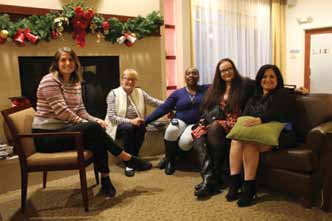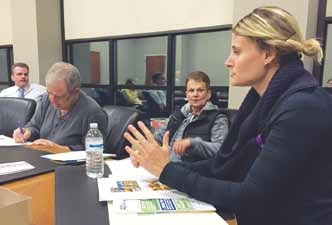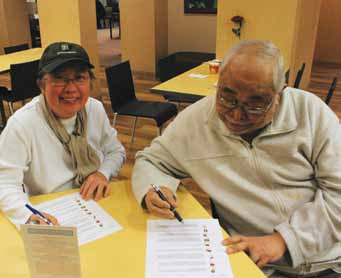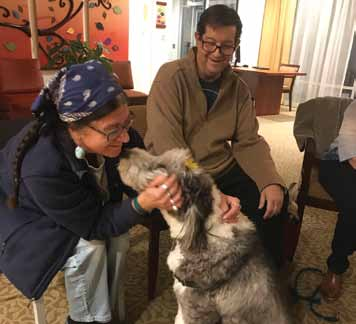Gift of Life Family House
- Vol. 2, No. 2
- Oct 3, 2020
- 4 min read
Updated: Jun 15, 2021
Imagine learning your family member is so sick that they’re in organ failure and may need a life-saving organ transplant. You and your loved one have to travel to a hospital in an unfamiliar city so they can undergo an intense evaluation to see if they can go on the
transplant waiting list. You may not even be sure you understand what is happening or what the doctor is saying to you. Your loved one becomes too sick to care for themselves, so you have to temporarily stop working to care for them and your family’s finances are strained. You and your loved one have to wait for “the call” that a life-saving organ is available for transplant, which might take days, months, or even years. You might be afraid the call may never come at all. While your friends and family continue with their lives, you try to cope with your new reality. You feel isolated and don’t have anyone to talk to who has experienced similar challenges or is knowledgeable about organ failure and the transplant process.
How do you keep moving forward?
Gift of Life Family House, a hospitality house and “home away from home” in Philadelphia, Pennsylvania for transplant patients, caregivers, and families created the Caregiver Lifeline Program to provide educational and emotional support throughout the transplant process to caregivers in the Gift of Life region (spanning Delaware, southern New Jersey, and the eastern half of Pennsylvania) and beyond. The Caregiver Lifeline Program is managed by a licensed social work team and offers support to transplant caregivers both inside and outside the walls of the Family House.
“Support for the caregiver is so important,” says Marilyn, a transplant caregiver who received support through the Caregiver Lifeline Program. “It helps to just know that we are not alone, that others share our concerns, and that there’s someone to support our feelings and problems.” Those supported by the Caregiver Lifeline Program include transplant caregivers—whether they are current Family House guests, have returned home from
the Family House, or will never stay at the Family House—transplant professionals, and the transplant and healthcare hospitality research communities.
Support for Transplant Caregivers Inside the Family House
“Transplant makes people feel different. It’s not widely understood by friends and family, and to go to a place like the Family House where patients and their families can be surrounded by others who understand their experience is a comfort that can’t be offered anywhere else,” say Brigid and Jason, transplant social workers from Thomas Jefferson University Hospital. Since 2011, the Caregiver Lifeline Program has offered more than 3,000 counseling hours to patients and caregivers and has facilitated more than 350 support
groups attended by nearly 2,100 individuals, all at the Family House.
“It was nice to chat with other caregivers and for my children to talk about what they were feeling in the support groups,” says Wanda, a Family House guest. Support group topics have included writing to a recipient’s donor family, nutrition and diabetes, managing financial concerns, engaging in difficult conversations, and establishing and reinforcing boundaries. Additionally, therapy dogs are welcomed at the Family House to help guests find comfort along the transplant journey.
Support for Transplant Caregivers Outside the Family House
Transplant caregivers who do not stay at the Family House or who have returned home after their stay can still receive support from the Caregiver Lifeline Program—free of charge. They can utilize the program’s online resource library that provides information about caregiver burnout, self-care, financial assistance, patient compliance, and transplant recipient guilt. Also available to them is an online caregiver support group moderated by its social work team where transplant caregivers from around the world discuss realities of caregiving, transplant milestones, and resources. The social work team hosts in-person support groups
throughout the Gift of Life region for transplant caregivers who are not Family House guests. Since 2011, it has facilitated 65 external groups attended by nearly 750 transplant caregivers. They are also available to connect transplant caregivers who feel lost to appropriate resources over the phone.
Partnering with Transplant Professionals
The Caregiver Lifeline Program partners with transplant hospital professionals throughout the Gift of Life region. Its social work team serves as liaisons for hospital social workers and transplant administrators to assist patients and families in navigating the transplant process. “Transplant patients and families are under such emotional and physical stress; having comfort from supportive services helps them cope tremendously,” says Danielle, the lead transplant social worker at Einstein Medical Center. “It is a great way to provide
the continuum of care for our patients.”
The Caregiver Lifeline Program offers professional training and education for those working in the field of organ transplantation as well as healthcare hospitality housing. Currently, continuing education credits are offered to the following professionals licensed in Pennsylvania: licensed social workers (LSWs), licensed clinical social workers (LCSWs), licensed professional counselors (LPCs), and marriage and family therapists (MFTs).
Over the past several years, the Family House social work team has spoken at numerous transplant or healthcare hospitality conferences and has offered several training sessions in person and via webinar, reaching more than 500 professionals nationally and internationally.
Research Pioneers
The Caregiver Lifeline Program facilitates research projects in collaboration with external, professional researchers. In 2018, it conducted a qualitative research study to evaluate how well the Family House supports the families who stay there. The study found that its services positively impacted the physical and mental health of its guests, that it provided a way to strengthen the resilience of family members as they navigate the difficult territory of the transplant journey, and that guests became advocates of organ and tissue donation as a result of their experience at the Family House.
In 2020, the Family House plans to conduct more research related to areas of transplant and healthcare hospitality to further contribute to the knowledge available in these fields.
Staying Connected
The Family House’s Caregiver Lifeline Program exists to provide transplant families with the
resources they may need as they navigate the transplant process, inside the walls of the Family House and beyond, no matter what stage of the transplant journey they’re in.
The Family House’s Caregiver Lifeline Program online resource library and online support group can be accessed at GiftofLifeFamilyHouse.org and the Family House’s social work team can be reached by email at caregiverlifeline@giftoflifefamilyhouse.org.











Comments